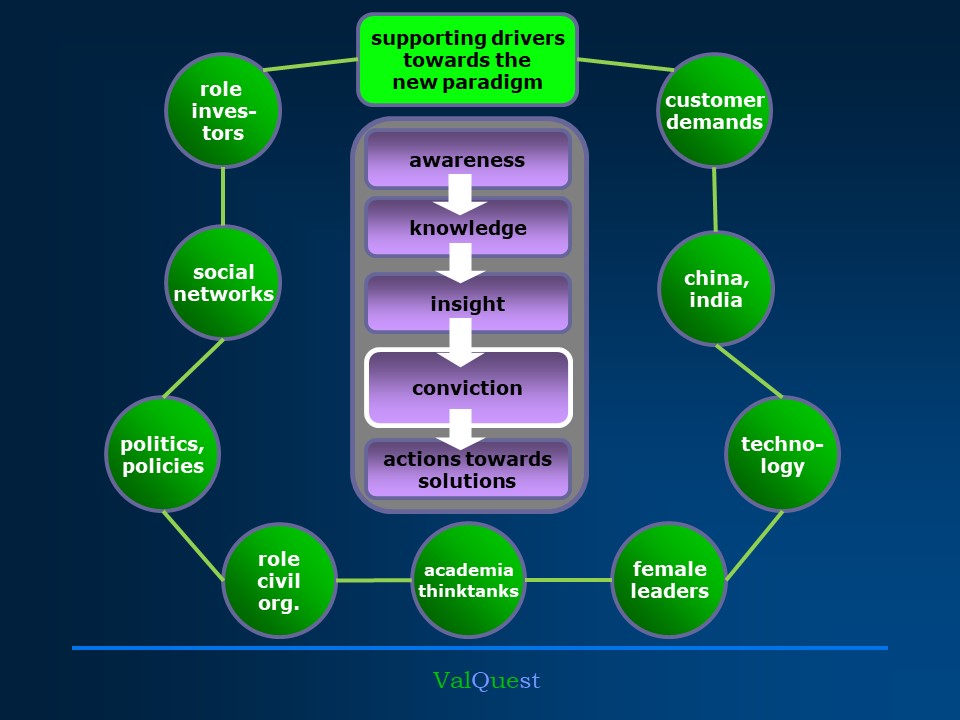
I think that in 2021 we see a clear economic transition taking place. The colossal problems we face, have now unleashed forces that support and even accelerate such a transition. It is principally the combination of climate change, gross inequality, loss of biodiversity, covid-19, social unrest, shortages of essential raw materials, imminent food shortages, and pollution that have finally made the vast majority of business executives, investors and politicians realize that radical change is urgently needed and inevitable.
[1] role of investors
[2] changing consumer demands
[3] influence of NGOs
[4] European green deal
[5] technological innovation
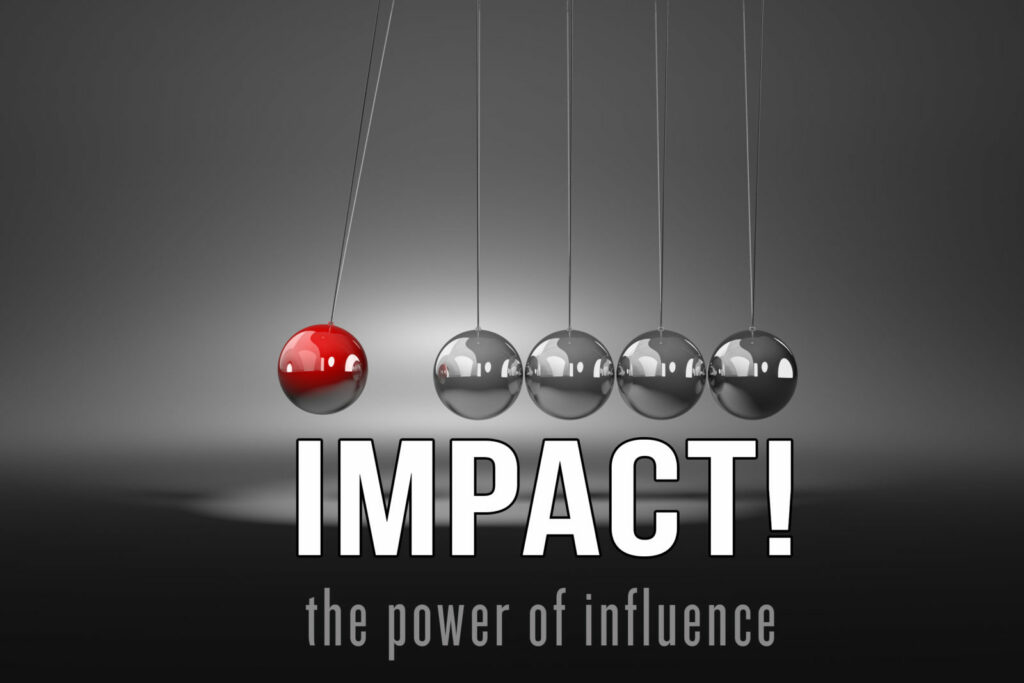
illustration: mrgao/123RF
[6]more women in charge
[7] role of China & India
[8] role of social media
[9] academia & think tanks
The most important development of the years 2019-2020 has been the rapid and extensive change in investors’ views on “sustainable business”, and “environmental and social governance” [ESG].
For decades, most of the financial world has judged the business philosophy “maximizing shareholder value” [“the business of business is business”] as superior, as an unassailable starting point for a business.
Then, in January 2018, the CEO of BlackRock, the world’s largest and most powerful investment fund [$ 8.7 trillion in 2020], published an open letter to the top executives of international listed companies. In it, he called for a fundamental change in business philosophy. He repeated those open letters every January since then.
Blackrock has an enormous influence over the boards of the world’s largest corporations, but in his letters, its CEO has now extended the influence to the hundreds of millions who are employed by them. BlackRock has put ethical and purposeful leadership into the mainstream expectation of the investment sector.
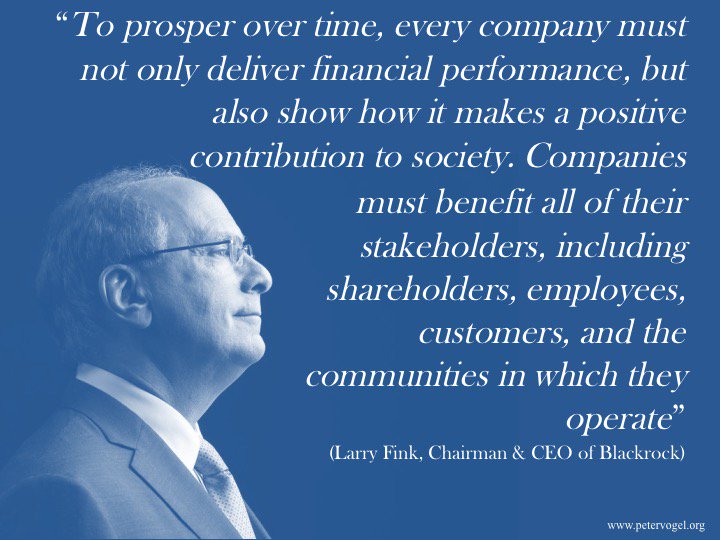
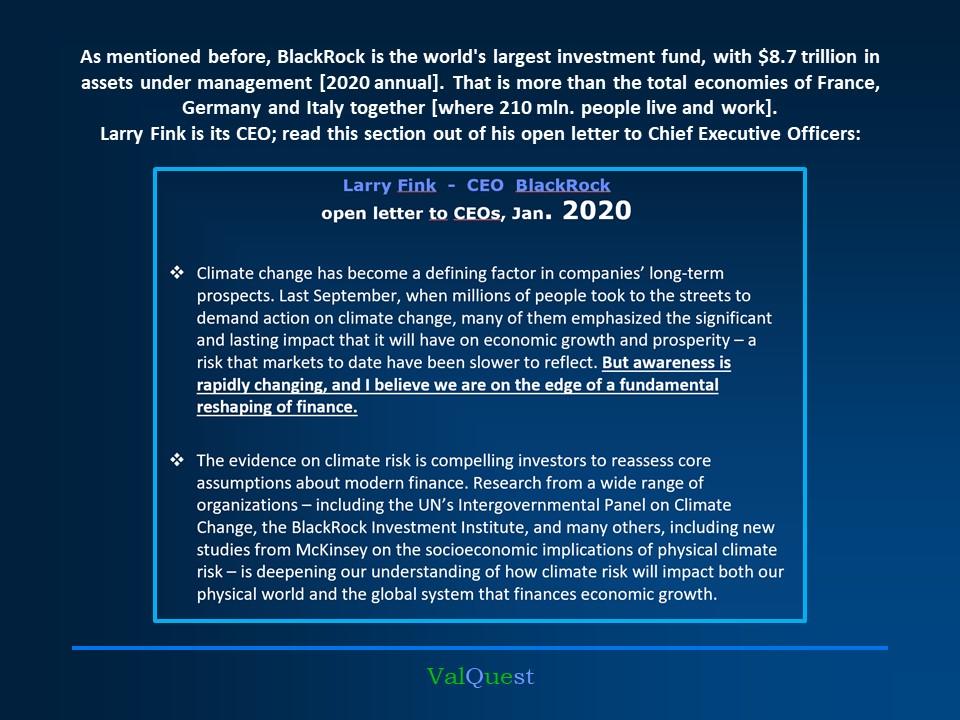

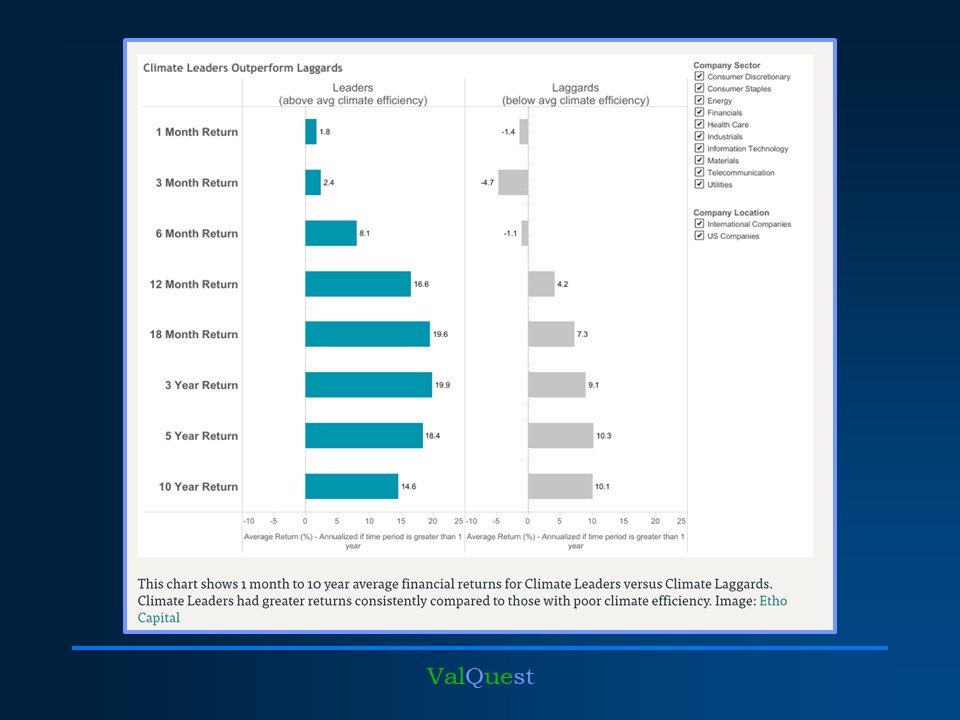
Etho Capital: “Once a company’s climate efficiency is known, we can identify and compare ´Climate Leaders´ with ´Climate Laggards´ in each industry sector.
The chart on the left includes several years of financial performance [using a 2014 data set of over 5,000 publicly-traded companies] and shows Climate Leaders outperformed Climate Laggards across most sectors and over most time periods”.
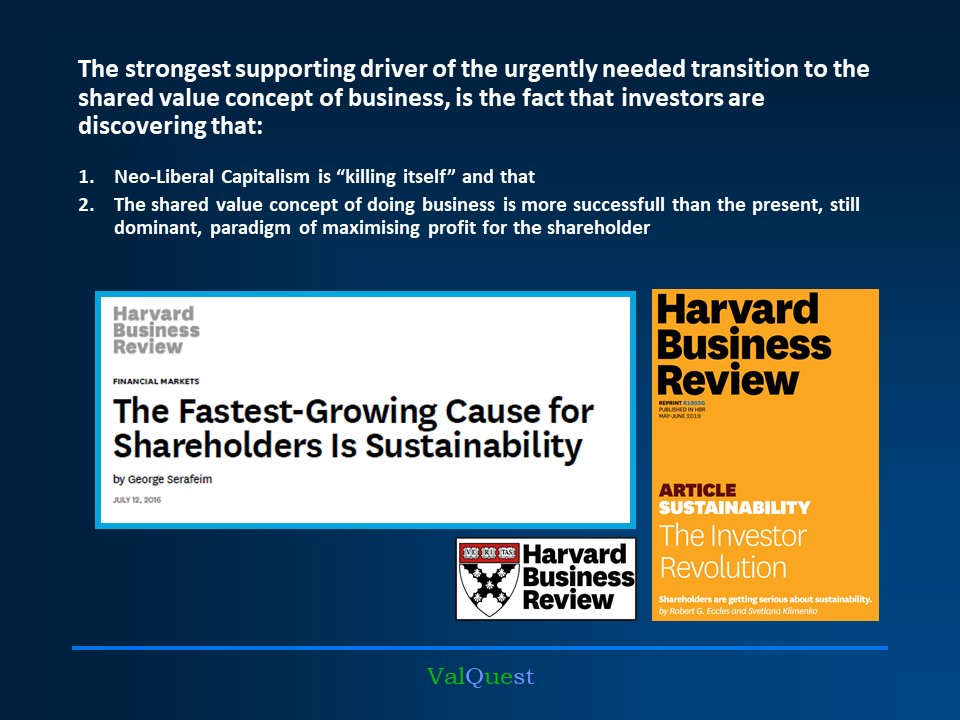
We have to bear in mind that there is more than $100 trillion worth of assets under management.
Until very recently, investor demands regarding environmental impact have largely focused on the climate crisis and greenhouse gas emissions. Now, investors are beginning to wake up to the threat of habitat destruction and biodiversity loss. And up to a whole range of environmental and social issues.
It is particularly interesting to see that companies and investors are engaged in this not only to manage risk but also to discover new commercial opportunities, and to innovate.
I have seen a few tectonic market shifts in the past decennia, but I’ve never witnessed one as large and exponentially fast as the one we are seeing in ESG right now.
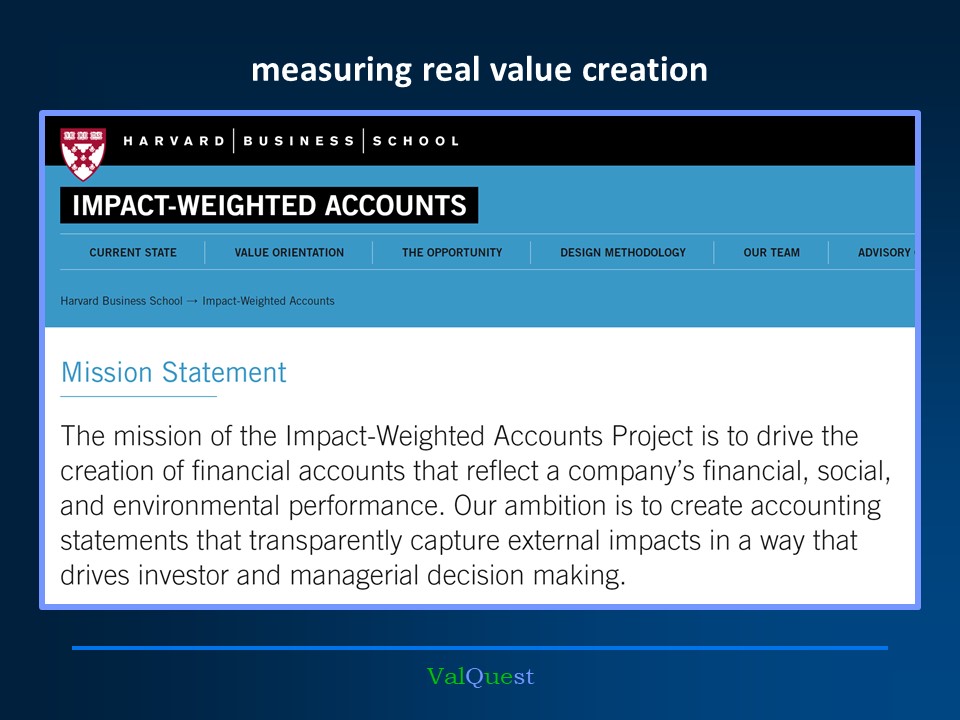
It is critical to management and investors that the true added value of a business can be measured, independently verified, and reported.
This concerns much more than the presently known “pure and simple” financial reporting.
One of the most serious initiatives to develop a methodology for this is happening at the Harvard Business School: the Impact-Weighted Accounts project, led by George Serafeim.
An important and much-discussed book in this regard is “Impact, Reshaping Capitalism to Drive Real Change” by Sir Ronald Cohen.
He is a preeminent international investor, entrepreneur, philanthropist, and social finance innovator and has dedicated two decades to leading the Impact Revolution to achieve real social and environmental change. He is also involved in the Harvard Business School project.
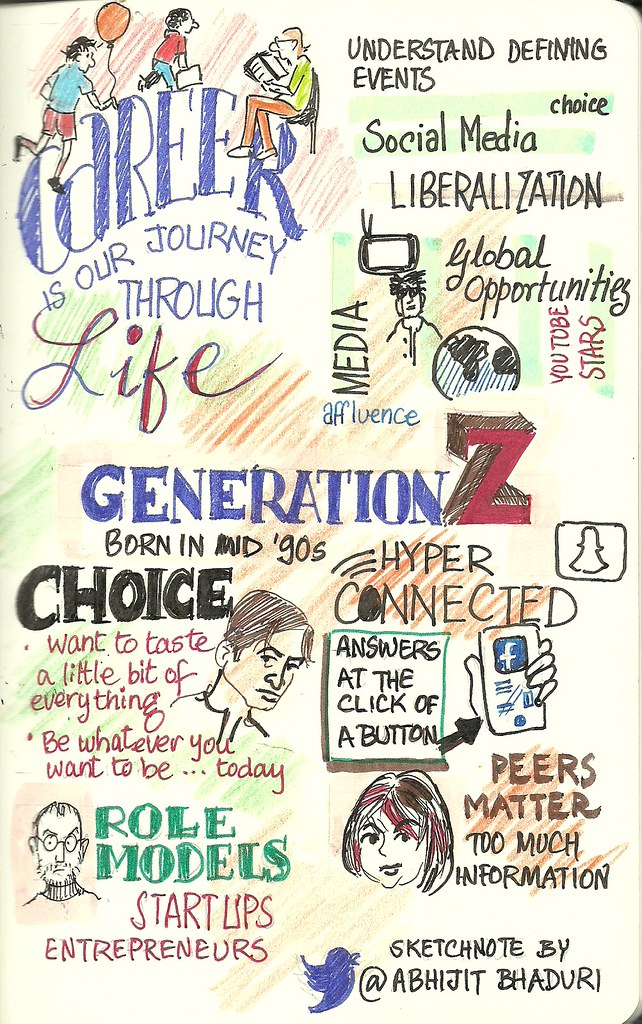
According to a recent global study of more than 27,000 respondents by GlobeScan and BBMG, “Radically Better Future: The Next Gen Reckoning Report”, 60% of the respondents under age 30 say the priority for the post-pandemic recovery should be restructuring society to deal with challenges, including inequality and climate change, rather than just getting our economy back to normal as soon as possible.
The research shows this generation to be authenticity-obsessed, motivated by meaningful work, and the most entrepreneurial generation yet.
Illustration: Abhijit Bhaduri [Flickr]
Like Millennials, “Generation Z” is a more conscious and activist consumer that recognizes its purchasing power as an influential force. Brought up in an age of recycling, this generation is well aware of the social and environmental challenges the world currently faces. This generation is looking for business to lead the way: 80 % believe that businesses are an essential part of the solutions for the challenges we are facing. They call on business to lead the way in an era of shifting paradigms.
photo: Joel Burgess

And 90+% think that the more socially and environmentally responsible companies are, the more this generation will be loyal as employees and customers. 61% Under 30 strongly agree that “we as a society should respond to climate change with the same urgency” as we have responded to the health pandemic.
Future optimism: Despite all the current societal challenges, 61% of this generation believes that their children and grandchildren will have a higher quality of life than they have today.
photo: Ken Mages



The evolution of influence, even power, of NGOs since the mid-1980s has been impressive. More important than their number growth, is the increase in their abilities to produce hard facts [often through specially hired scientists/specialists], their talent to attract members and money; their competencies to effectively campaign, to mobilize publicity via all available media – including social networks.
Both governments and corporations regard NGOs as an influential power factor, especially the international ones. Trusted NGOs are also important in forming solution-seeking platforms with other NGOs, business organizations, think tanks, academics, and government officials. Problematic can be the fact that NGOs in many cases are foundations, which means that decision-making is done by an executive board, without democratic control.
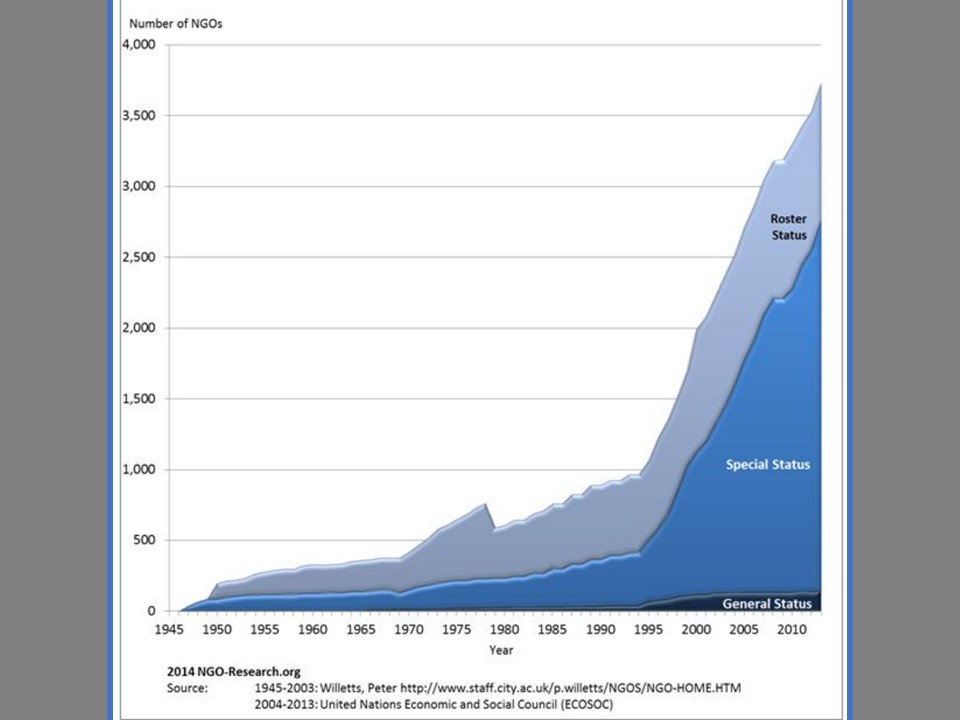
next, some examples of major international NGO campaigns:
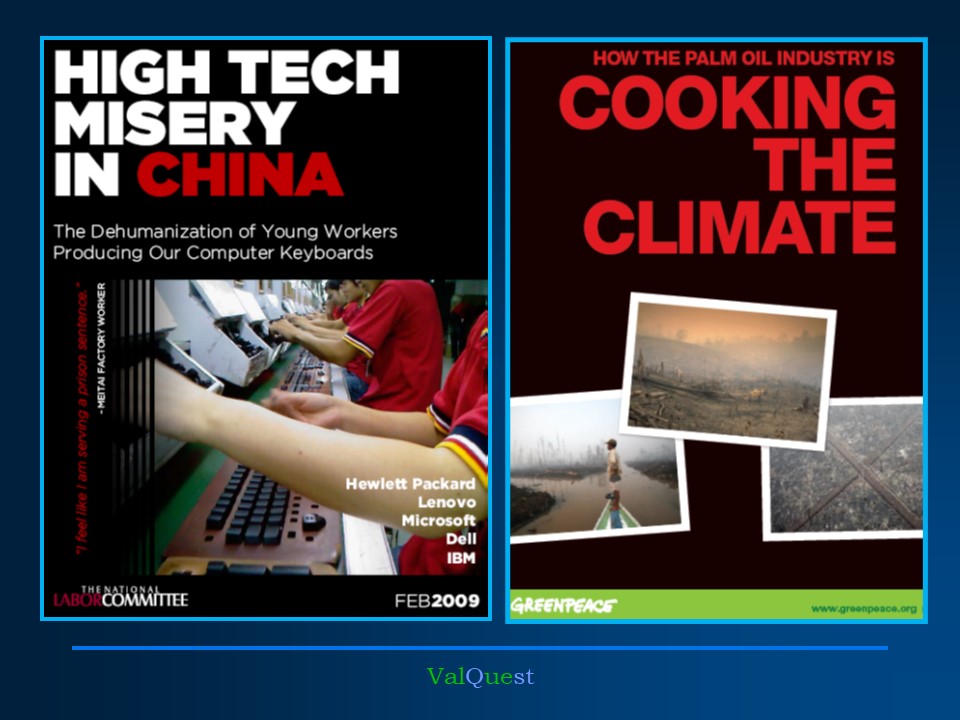
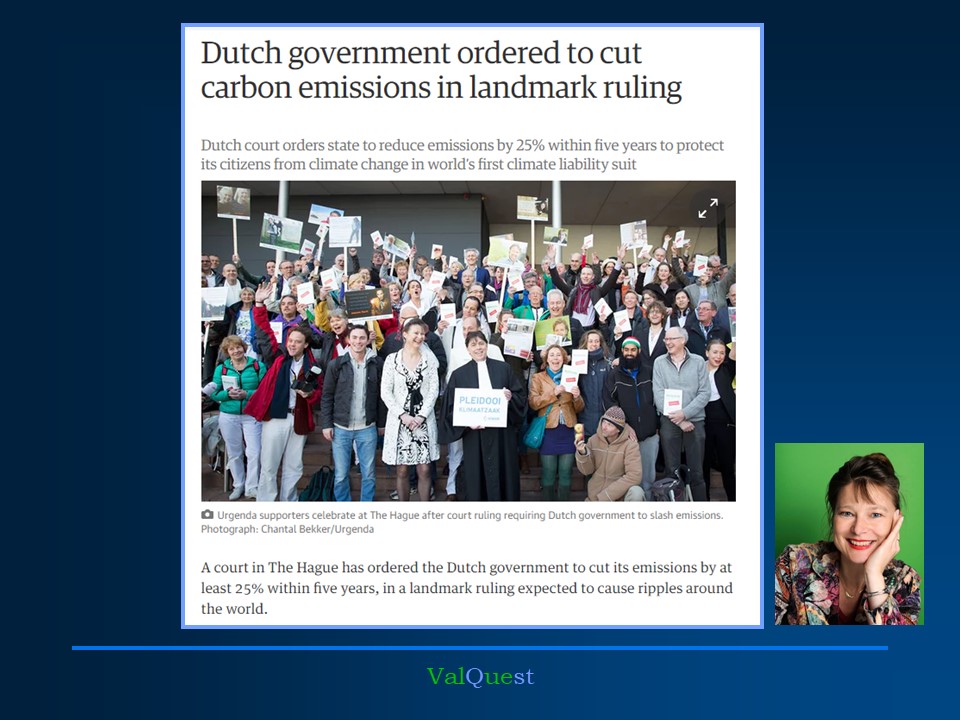
It was the first time a court has determined that states have an independent legal obligation toward their citizens. To underscore the international significance of the case: the UN High Commissioner for Human Rights published a news release about the decision and stated that “the decision confirms that the Government of the Netherlands and, by implication, other governments have binding legal obligations, based on international human rights law, to undertake strong reductions in emissions of greenhouse gases.”
NGO Urgenda´s lawsuit against the Dutch State was prepared and executed with the utmost professionalism; the ruling of the Supreme Court on December 20, 2019, was truly historical, world news, and has inspired NGOs in other countries to do the same….
In Belgium, Canada, Colombia, Ireland, Germany, France, New Zealand, Norway, the United Kingdom, the United States, and Switzerland cases have been brought against the State or companies.
The judges ruled that government plans to cut emissions by just 14-17% compared to 1990 levels by 2020 were unlawful, given the scale of the threat posed by climate change.
As one climate campaigner put it: “There are moments in history when only courts can address overwhelming problems. In the past, it has been issues like discrimination. Climate change is our overwhelming problem and this court has addressed it. The Dutch court’s ruling should encourage courts around the world to tackle climate change now.”
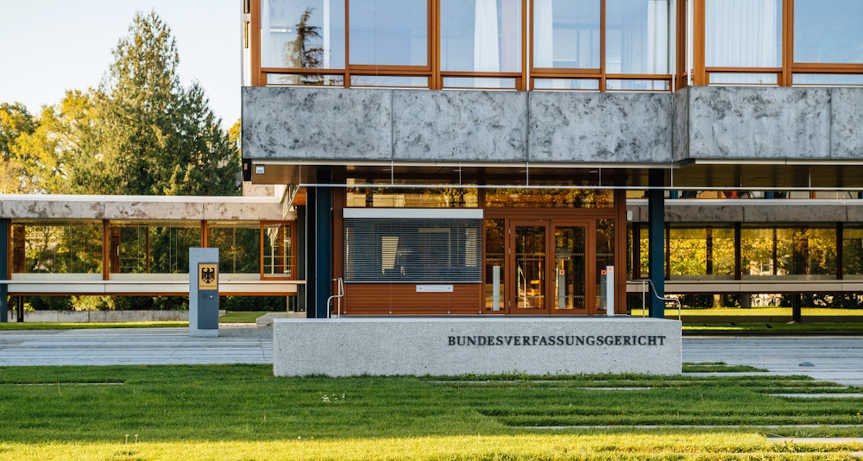
On April 30, 2021, Germany’s supreme constitutional court has ruled that the government’s climate protection measures are insufficient to protect future generations, after a complaint brought by environmental NGOs and individuals. Read the relevant article in The Guardian here:
As stated before, Trusted NGOs are also important in forming solution-seeking platforms with other NGOs, business organizations, think tanks, academics, and government officials. The present communication technology facilitates that profoundly.
These are complex arrangements of cooperation, of joint project-based search for solutions. It may involve a platform of a network of platforms. I find it a particularly interesting development, which in my opinion can enrich democratic decision-making processes. It is a truly contemporary social innovation.


An interesting example of such a solution-seeking platform, such a “network of networks” is the 2030 Water Resource Group, see slide above on the right.
It consists of 800+ partners – civil society, the private sector, and governments. With a global influence & knowledge, they can rapidly activate strategic coalitions and public-private-civil society partnership models to put priorities into action. And to share best practices, to support cross-learning among countries.
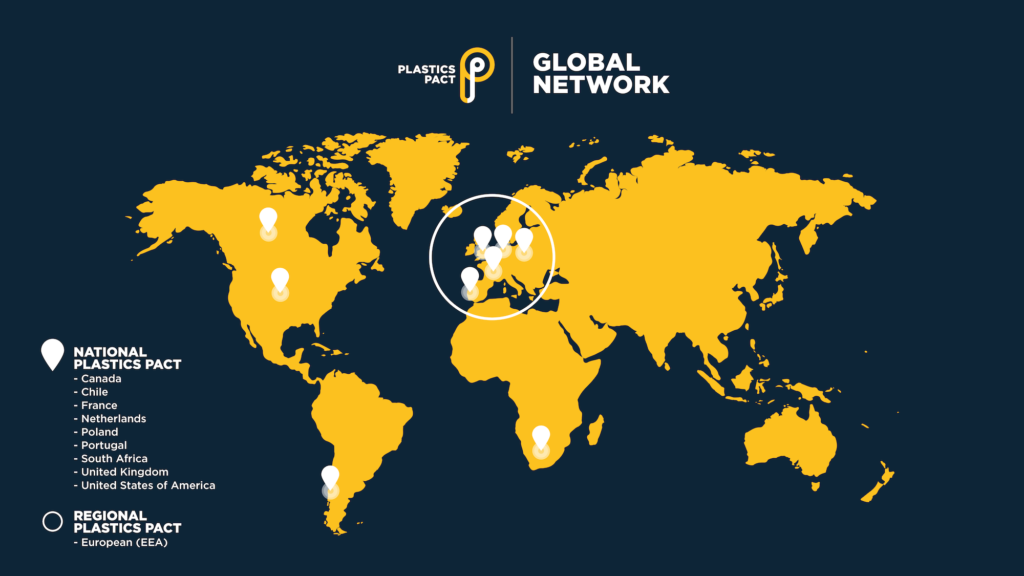
Finally, another example of an important international platform, facilitated by the Ellen MacArthur Foundation: the Plastics Pact. It is an ambitious initiative to unify diverse public-private stakeholders across the plastics value chain to rethink the way plastic is designed, produced, used, and reused; to create a path toward a circular economy for plastics.
It unites more than 850+ organizations, plastic packaging producers, mass consumer product brands, retailers, recyclers, waste management companies, policymakers, NGOs, researchers, and other stakeholders.
Democratic decision-making is complicated, however, and not seldom too slow [lacking urgency] and not always to be trusted. Think of the landmark Paris Agreement [concerning climate change] of December 2015, and the subsequent withdrawal of the USA some years later.
Achieving the EU’s 2050 sustainability vision is possible, but it requires an ambitious and even radical set of actions. That is what the European Green Deal is about, which in 2021 lies at the very heart of EU policymaking.
It is a strategic transition that requires very serious investments, but those will bring the European civilians huge gains: because of avoided harm, and also because of the economic opportunities that they create.

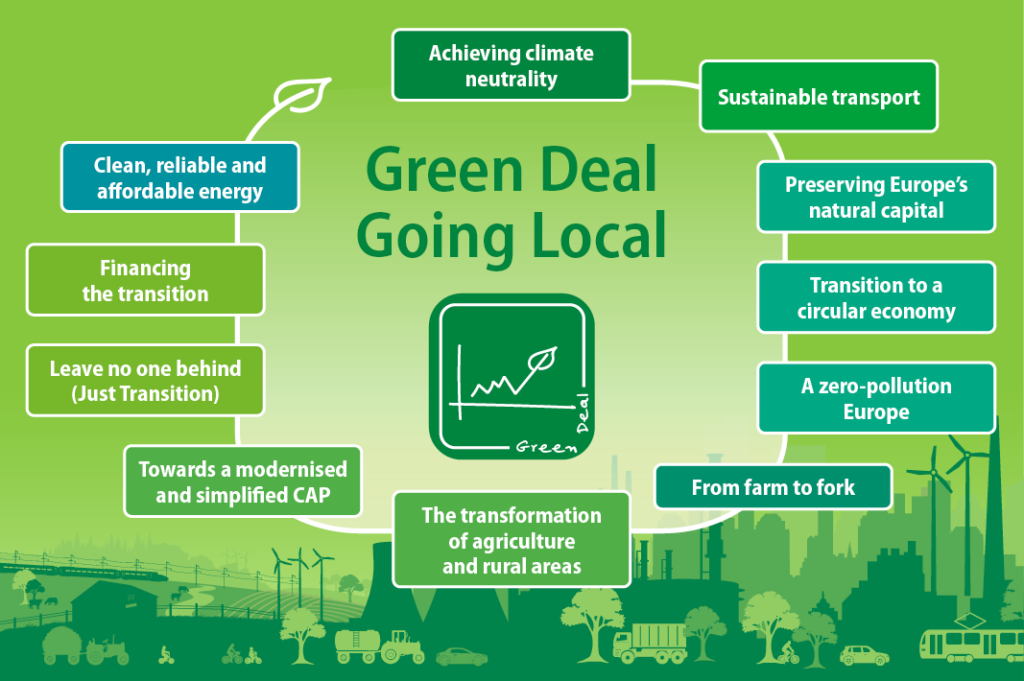
The Green Deal isn’t a law. But it will inspire a legislative firestorm. The coming years will see a flood of new regulations: strategies for transportation, agriculture, renovations of buildings, pollution, finance, hydrogen, the circular economy, etc. These will then put serious pressure on the 27 member countries to implement those new regulations.
The transition will certainly also hurt: for instance in the Eastern European countries, where an important coal industry is still active. But other economic areas will also have to change drastically – such as the agricultural sector. Successful governance of the transitions will require that societies acknowledge these trade-offs, and produce effective and just ways to deal with them.
The EU’s Sustainable Finance Strategy is the first of its kind to ask serious questions about the role of the financial system in driving the necessary change.
It is fundamental to direct investments toward sustainable projects. This is why a common classification system for sustainable economic activities or an “EU taxonomy” has been created.
The EU taxonomy is a very important facilitator to implement the European Green Deal. And to create security for investors, and protect them from greenwashing.
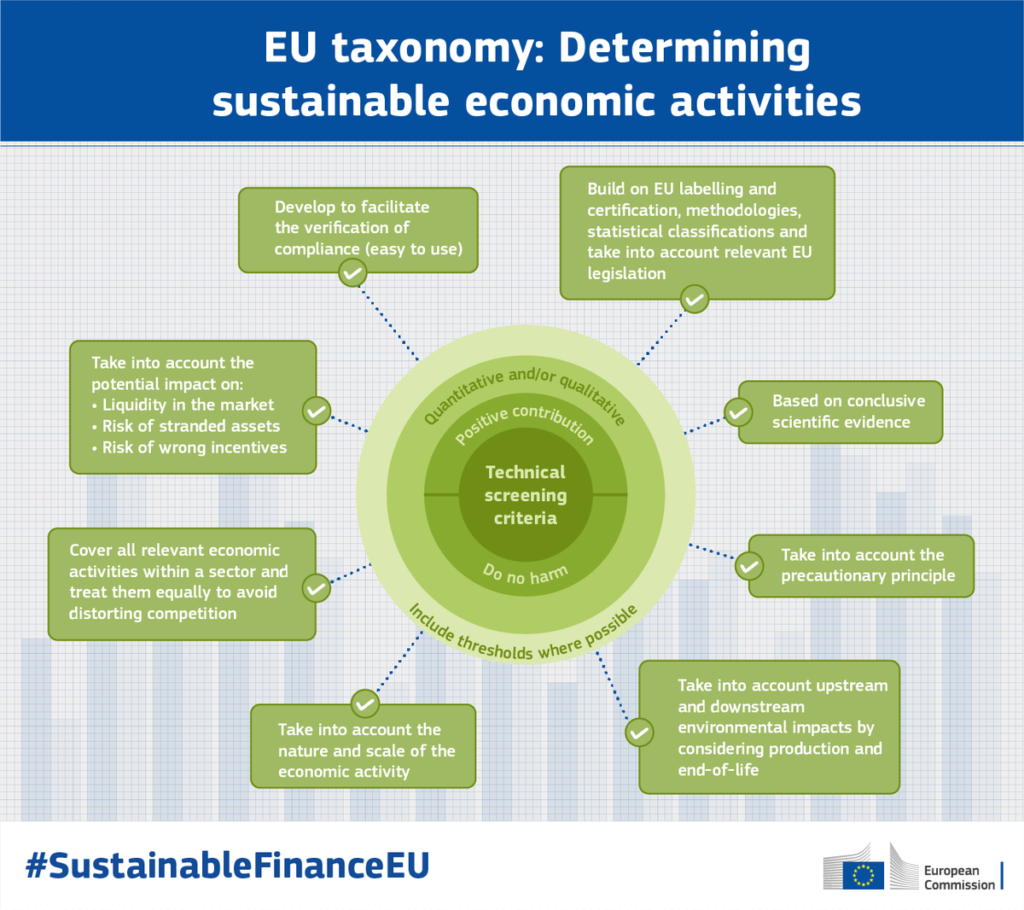
I do not belong to the group of people who believe that technological innovation will solve all of our problems, eventually.
I do believe however that it plays a significant role.
Artificial intelligence for instance could play an important supporting role in making the circular economy happen.
illustration: Mercedes-Benz Research & Development North America

Of course, the urgently needed search for efficient and affordable energy sources will continue with great force…. windpower & solar are the well-known ones. These technologies are still being further developed and also require breakthrough innovations in the field of energy storage. Please visit the Rethinkx website [link below]
In addition, geothermal energy and green hydrogen are areas in which it is hoped that innovative breakthroughs will also take place.
Transport systems are also a spearhead of the various international innovation strategies, as well as artificial intelligence, computer and communication technology, biotechnology, and pharmacy.
illustration: MAHLE China
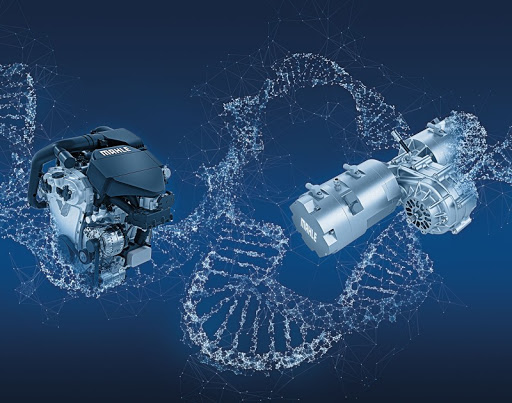
“This report sets out clear milestones – more than 400 in total, spanning all sectors and technologies – for what needs to happen, and when, to transform the global economy from one dominated by fossil fuels into one powered predominantly by renewable energy like solar and wind. Our pathway requires vast amounts of investment, innovation, skillful policy design and implementation, technology deployment, infrastructure building, international co‐operation, and efforts across many other areas”.
Dr. Fatih Birol, Executive Director, International Energy Agency.
In 2020 the World Business Council on Sustainable Development published an “issue brief” on innovations outlining 5 business model shifts, 12 emerging technologies, and 8 social innovations that could shape the next decade. See the link hereunder.
I share this publication because technological innovation often requires the corresponding business model and/or social innovations as well.
illustration copyright: pitinan [123rf]

Innovation concerning malnutrition, alternative protein products, in general: a healthy diet, will play a very important part. Major food production system innovations are necessary to be able to feed the present poor and the extra 2 billion inhabitants we can expect shortly.
Interesting information can be found at the Good Food Institute – see link below.
Also smaller scale “vertical and urban farming” – technically highly sophisticated food production systems like this one in a museum in Berlin. Most initiatives are on a larger scale and involve aquaculture as well.
Infarm kiosk – Gropius Bau Museum Berlin

A very interesting new Dutch venture, with headquarters in Amsterdam, is GrwNxt which will produce fresh food in megacities by building a care-free, data-driven indoor infrastructure.
Large fruit and vegetable buyers such as hotels, hospitals, and corporate and public campuses will outfit their buildings with climate rooms fully equipped and operated by GrwNxt, which incorporates the famous Dutch horticulture and greentech expertise in the state of the art technology.
Powered by machine learning, GrwNxt will drive quality and yield to levels not reached by other indoor farms.
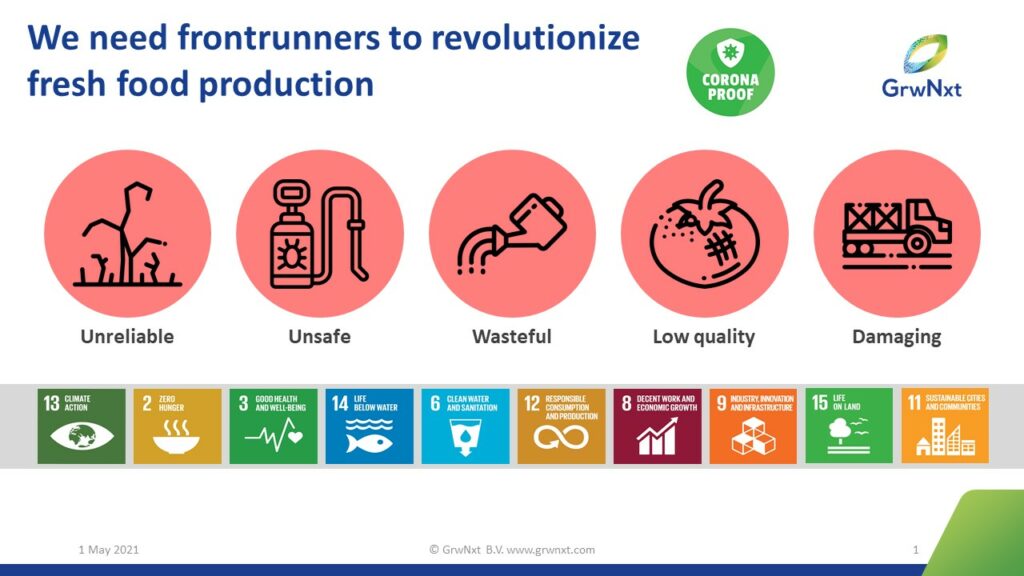

“Awarded in the top 50 of the Green Planet Architects, Vincent Callebaut Architectures is referenced as the best eco-prospective and visionary architectural firm by Time Magazine. This Archibiotect designs and builds with the future in mind.
Biomimetic and plus-energy buildings that produce their own power, vertical forests, pollution-removing towers and boats, floating cities and oceanscrapers, and vertical food farms. Vincent Callebaut has single-handedly spearheaded green and sustainable design, taking it to the next level.”
Discover on his website projects that meet the major urban and ecological challenges of the 21st century. You certainly will not regret your time investment.
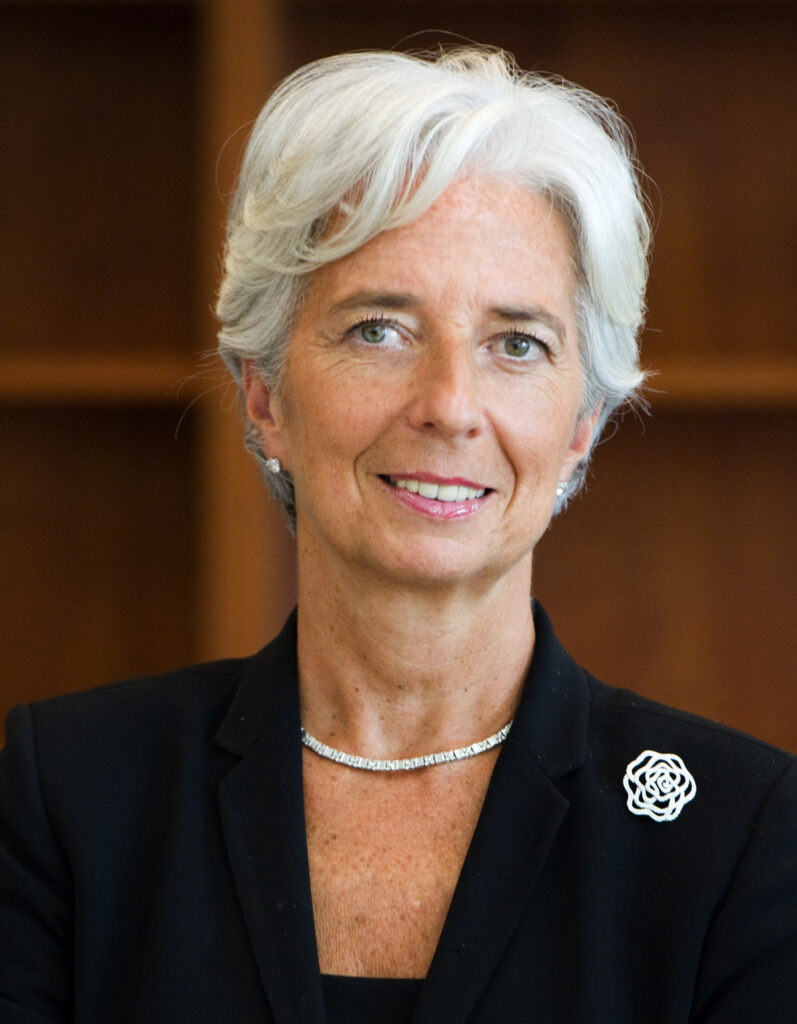
Lloyd Blankfein, Goldman Sachs CEO, thought he was so far above ordinary, error-making mortals that in 2009, shortly after the Wall Street collapse in which Goldman Sachs played such a prominent role under his brilliant leadership, he declared that he was “doing God’s work.” Fortunately, in the past 2 years more and more women have been appointed to powerful positions in the worlds of economics and finance – usually for the first time in history.
On the left is Christine Lagarde, since 2019 president of the European Central Bank; the Bank´s first female president in history. On the right Jane Fraser, CEO of Citi Bank since early 2021, made it the first female CEO in Wall Street´s history.

Will we observe more drastic shifts in the policies of the bodies that set the world’s economic outlines? Will there be more attention to the downsides of the neo-liberal religion, such as the increasing inequality and a democratic deficit?
If one thing is clear about the role of gender in economic decisions, it is that men are more likely to take risks. The assumption that the macho culture among bankers was at the root of the financial crisis in 2008 does not seem that far-fetched.
Apart from the two aforementioned, the following women have taken the top positions in powerful financial and administrative institutions in the past 2 years:

1st female USA Secretary of the Treasury; since 2021

Managing Director International Monetary Fund; since 2019
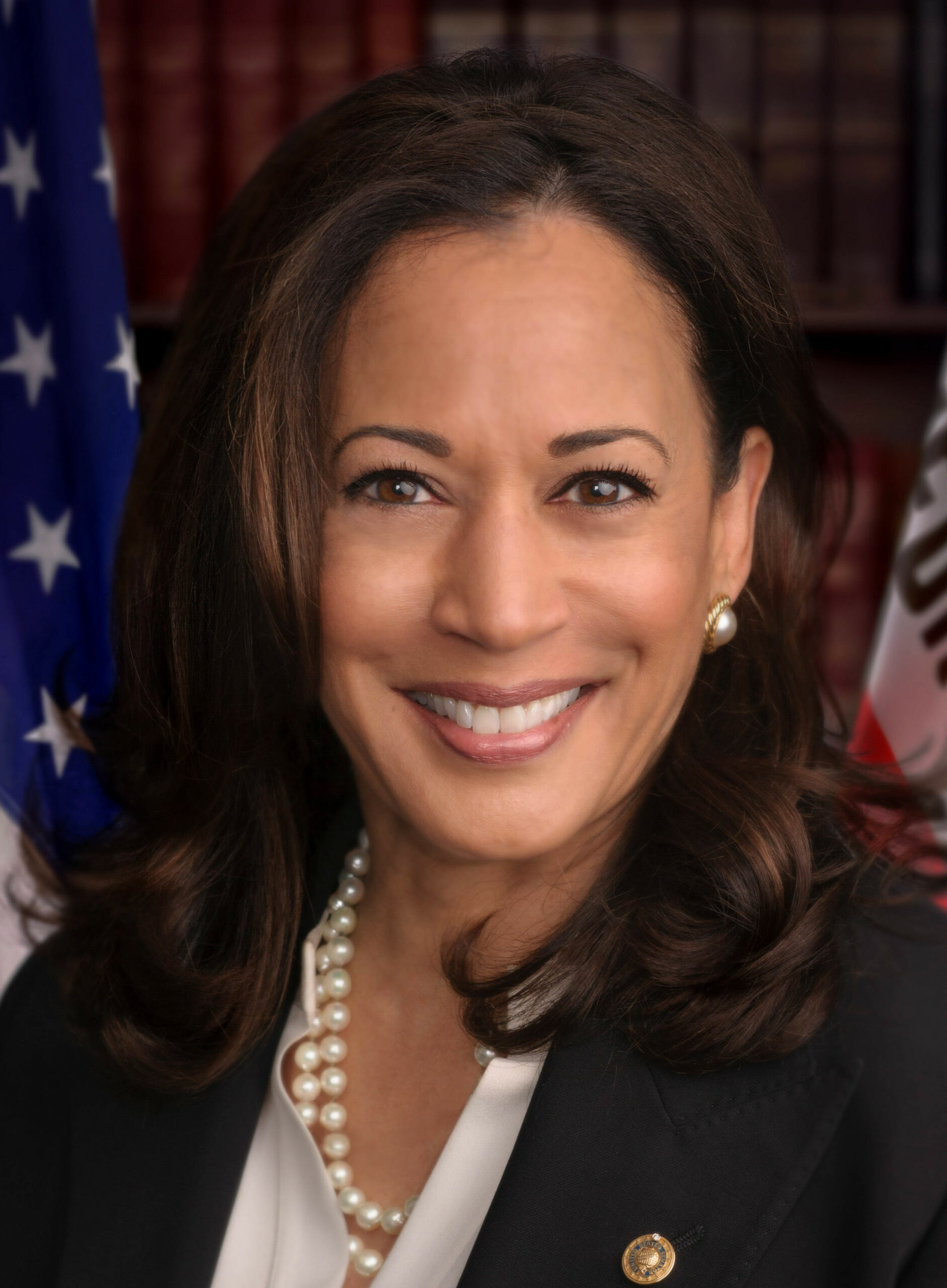
1st USA Vice-President; since 2021
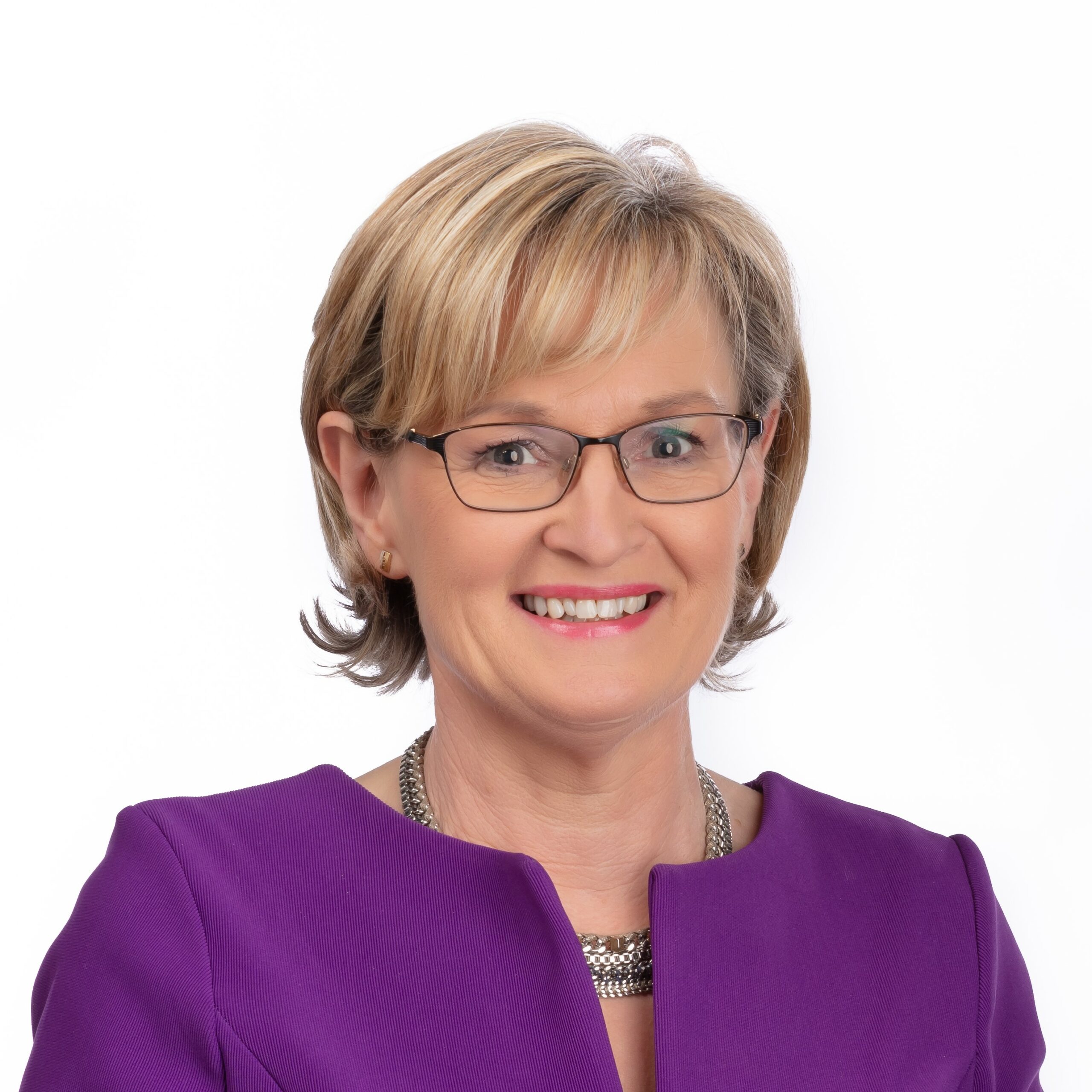
European Commissioner Financial Stability, Financial Services and the Capital Markets; since 2020
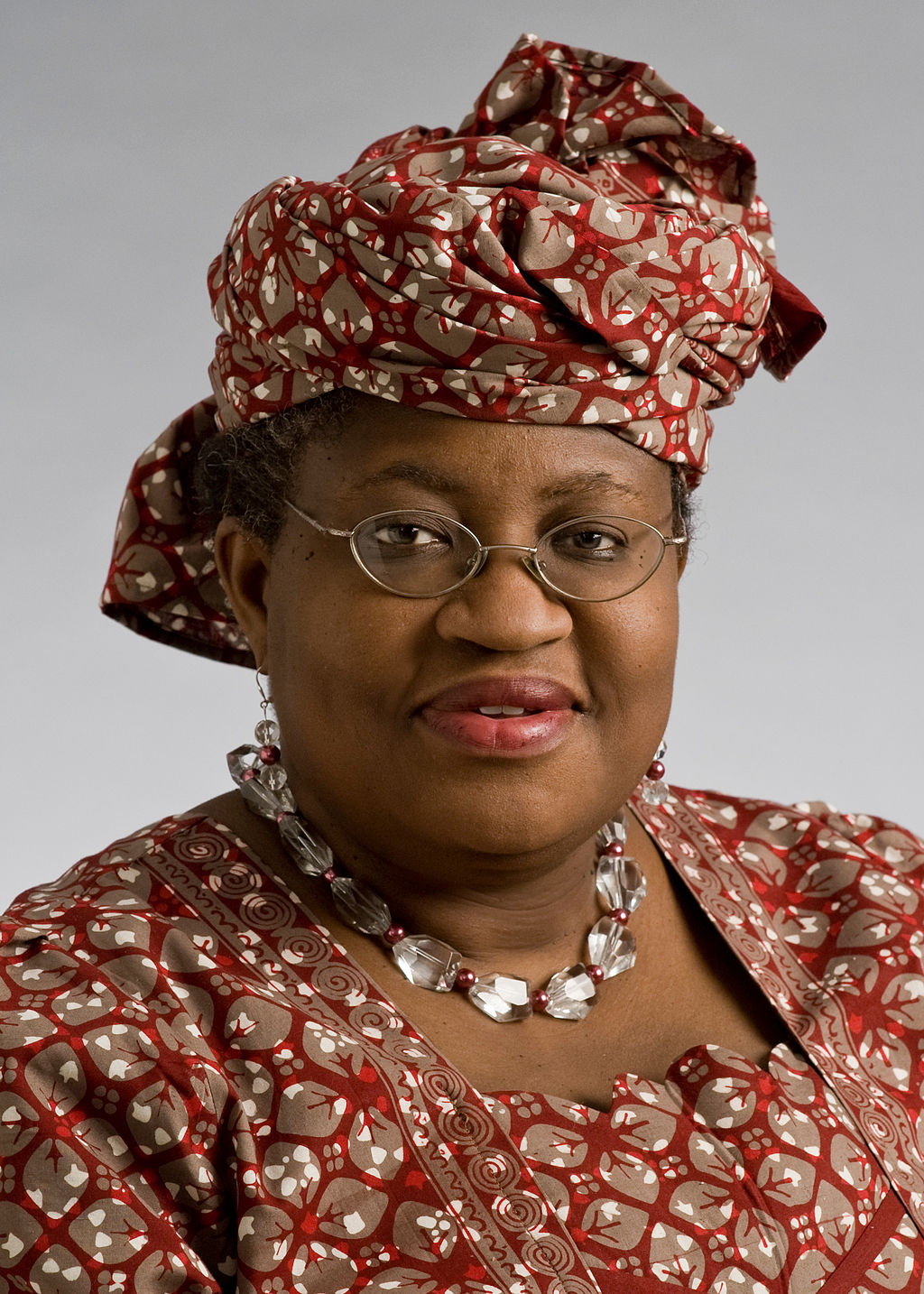
1st female Director General of the World Trade Organisation; since 2021

1st female President of the European Commission; since 2019

The first Deputy Managing Director of the International Monetary Fund.

Chief Economist World Bank; since 2020
Nearly 40% of the total world population today lives in China and India, whose economies are growing faster than those of the western countries.
Meaning that their middle class of consumers is growing. Meaning also that their claims on the world´s resources are increasing, making the challenge of resource depletion even more urgent, more challenging.
But it also means that more intellect & creativity, thus problem-solving capacity, to address the world´s challenges are offered; see next example.


Gita Gopinath was born in Kolkata, India. She received an M.A. degree in economics at the University of Delhi. She further completed an M.A. degree at the University of Washington and earned her Ph.D. in economics from Princeton University, under the supervision of Ben Bernanke and Kenneth Rogoff.
She was awarded the Princeton’s Woodrow Wilson Fellowship Research Award while doing her doctoral research at Princeton.
Gopinath was appointed as Chief Economist of the International Monetary Fund in October 2018.

photo: Thomas Chan


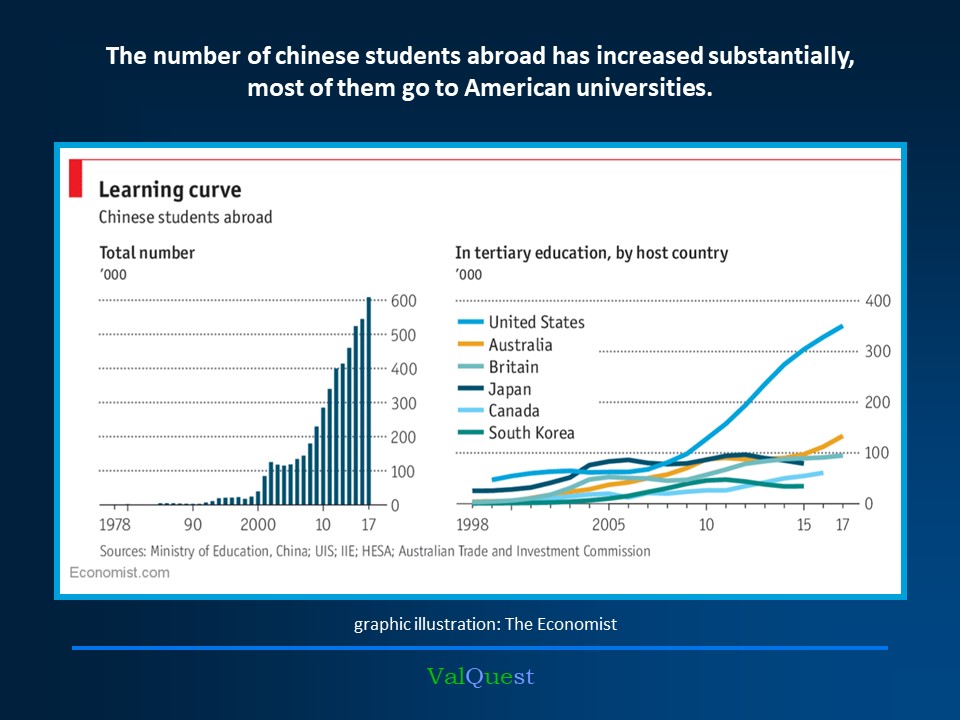
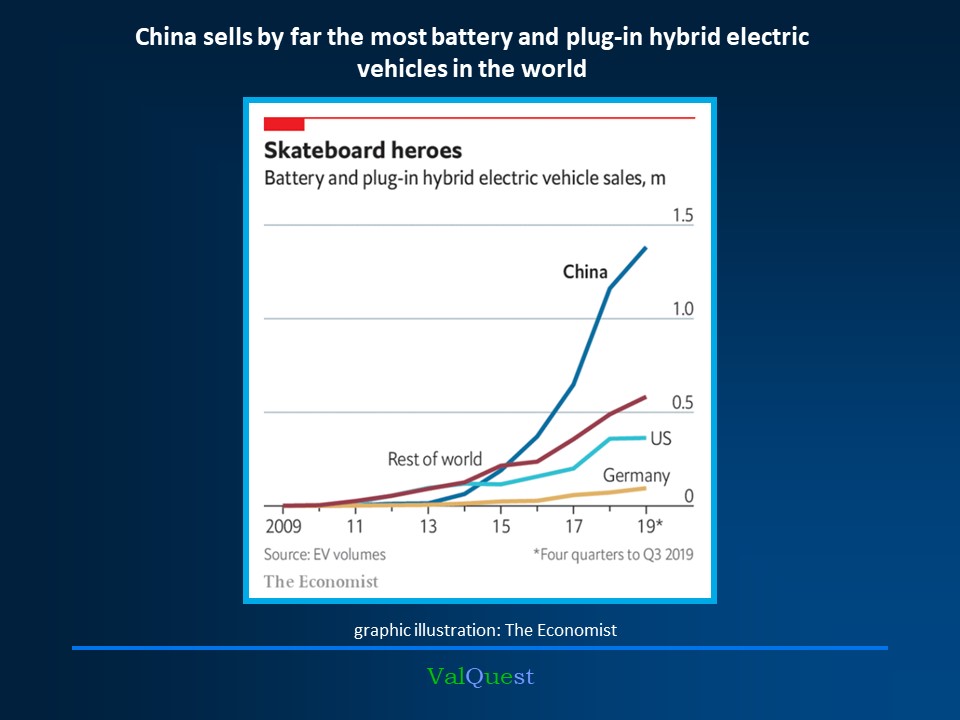
Many of China’s most pressing domestic policy priorities are poverty alleviation and pollution control. China President Xi Jinping strongly and repeatedly emphasized the essential role that sustainable development will play in Chinese policymaking. China aims to build an “ecological civilization”, and has enshrined that concept in the Constitution.
In 2020 India & the EU issued a Joint Declaration to scale-up cooperation in the area of sustainable development. It will support and strengthen collaboration on resource efficiency and circular economy and facilitate the design, planning, implementation, promotion, and dissemination of policies, strategies, technologies, business solutions, and financing mechanisms on these issues.
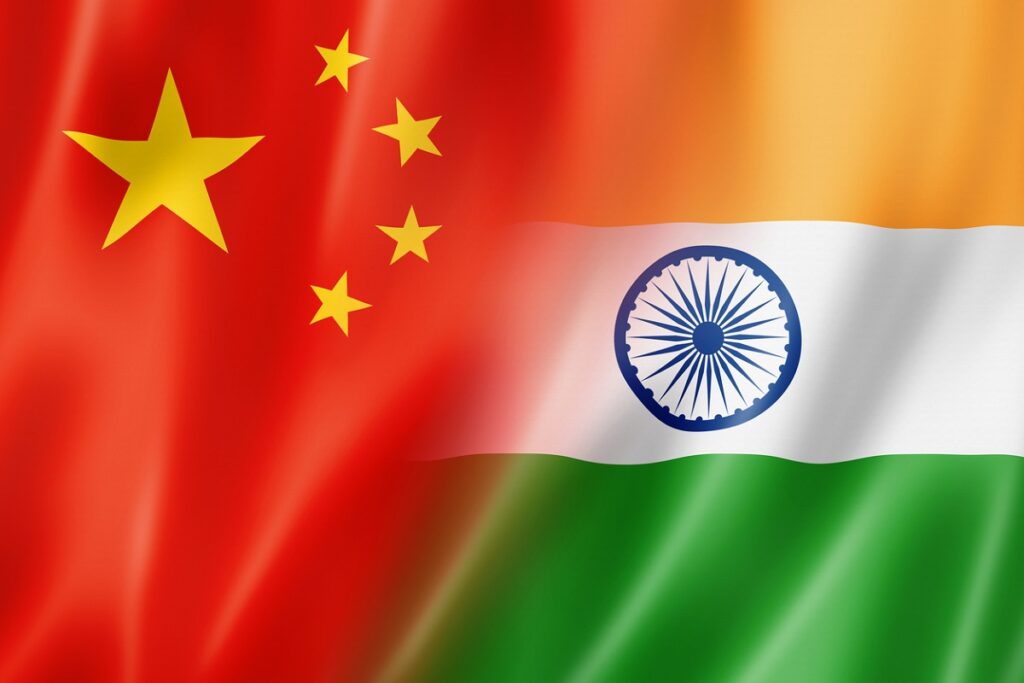

Practically the whole younger generation uses social networking sites.
“Fake news”, “alternative facts”, and “hate mail” are very serious issues that still have to be dealt with effectively.
On the other hand: today´s communication technology offers sublime opportunities to run campaigns, and mobilize people internationally within a very short time at practically no cost.
Corporations only relatively recently became aware of the serious dangers that such a tool in the hands of the public can pose to their reputation, and their brand image when they misbehave. And thus can threaten their value on the stock exchange. Incurring the anger of their shareholders.
Influencers in general, and celebrities, in particular, have millions of followers, the 20 most famous ones between 10 and 210 million ….
Many of them also address problems such as climate change, injustice, unhealthy eating habits, etc.
Their impact, on young people, in particular, cannot be overestimated.
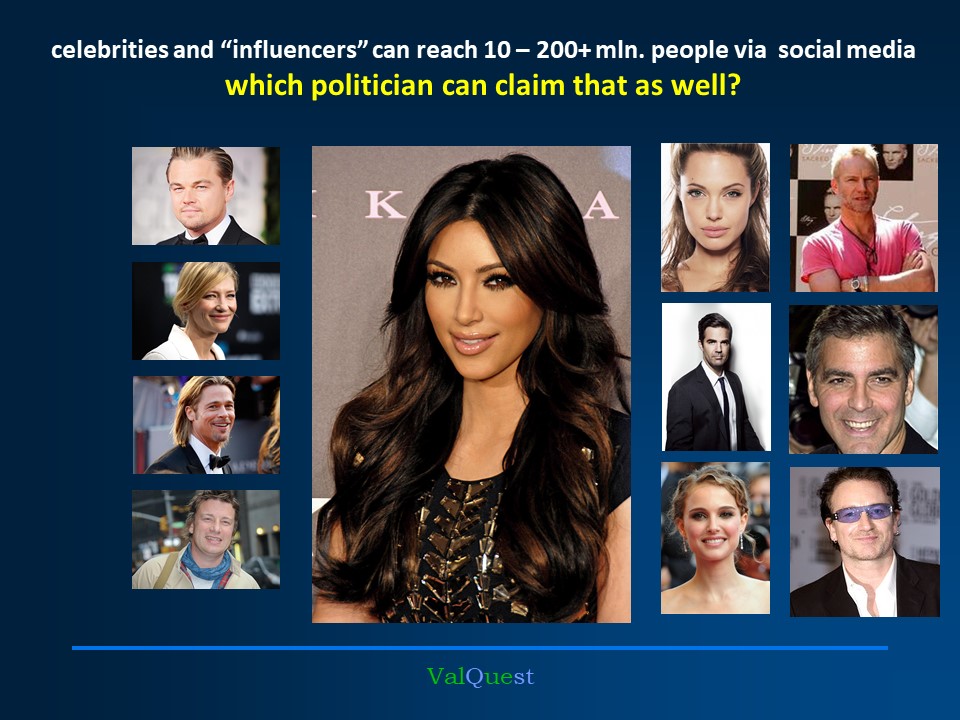
YEREVAN [Reuters] – US reality TV star Kim Kardashian heaped praise on Swedish teenage climate activist Greta Thunberg on Tuesday, calling her a ´brave and amazing young woman` and saying she shared her concerns about climate change. Kardashian, 38, said she would love to have dinner with Thunberg.
´She [Thunberg] is such an amazing young girl, and so brave and courageous to stand up to these grown-ups that can be very scary and for her to be so open and honest is exactly what we need,` Kardashian told Reuters in an exclusive interview during a visit to Armenia.
´Climate change is a serious problem,` said Kardashian, who was attending the World Congress on Information Technology [WCIT] in the Armenian capital Yerevan.
In the section “the times they are changing”, chapter “redefining capitalism” [see link below left], I mention 16 of the many economists who have criticized neo-liberal economic ideology for years. And who offer directions to a new economic paradigm.
The same applies to several international think tanks, such as the New Economics Foundation, the Institute for New Economic Thinking, Foundation for European Progressive Studies, R3.0 [link middle], Center for Economic Policy Research [see link below right]
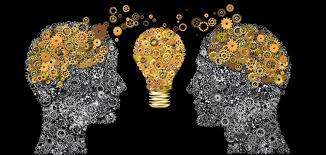


This website is a personal narrative, based on 50 years experience in international business, non governmental organisations and consulting practise. My guest lectures at the Institute of Environmental Sciences [Leiden University, The Netherlands] are derived from it.
Ludo van Oyen – Brussels, 2021
Some photos are taken from the web. If you think your photo is used and you disagree, please send me an e-mail and I will remove it from this site.